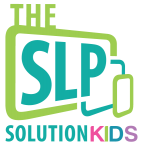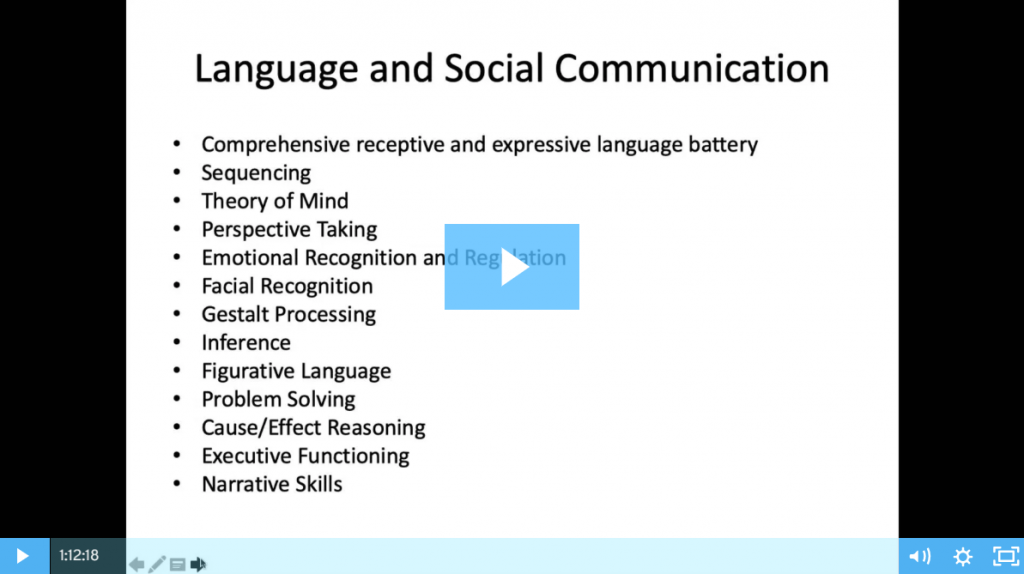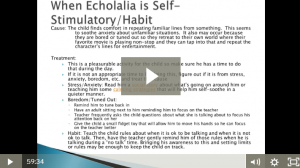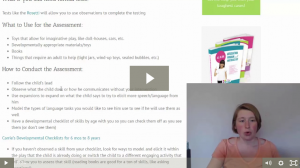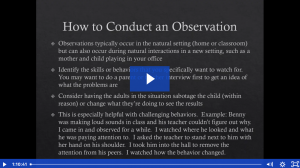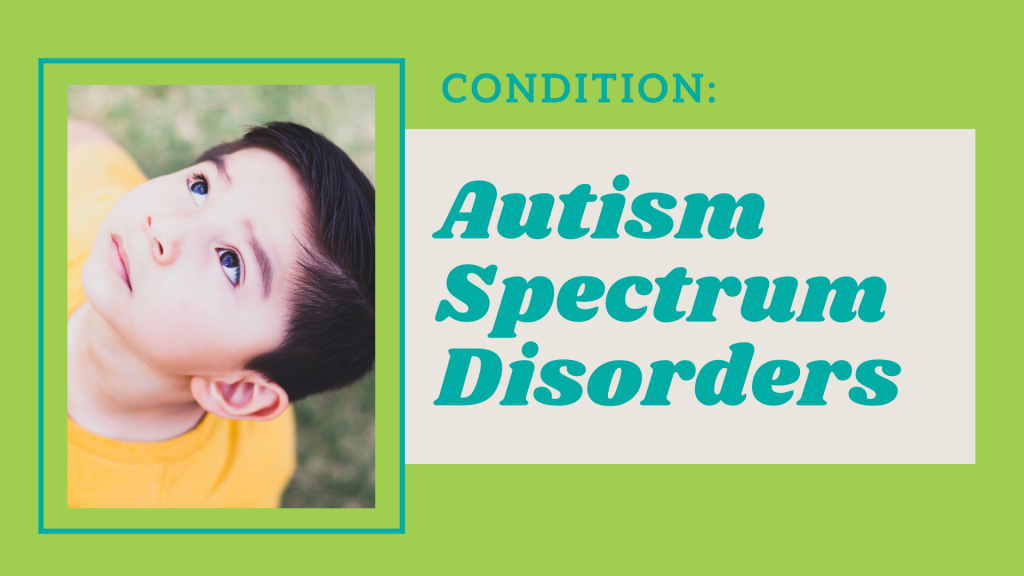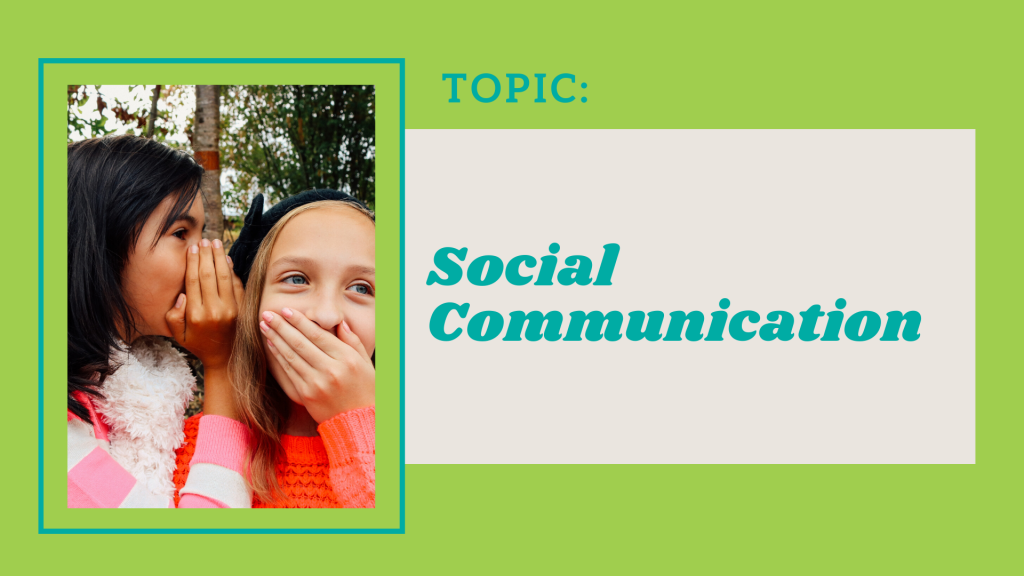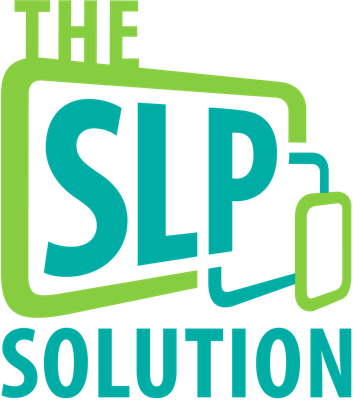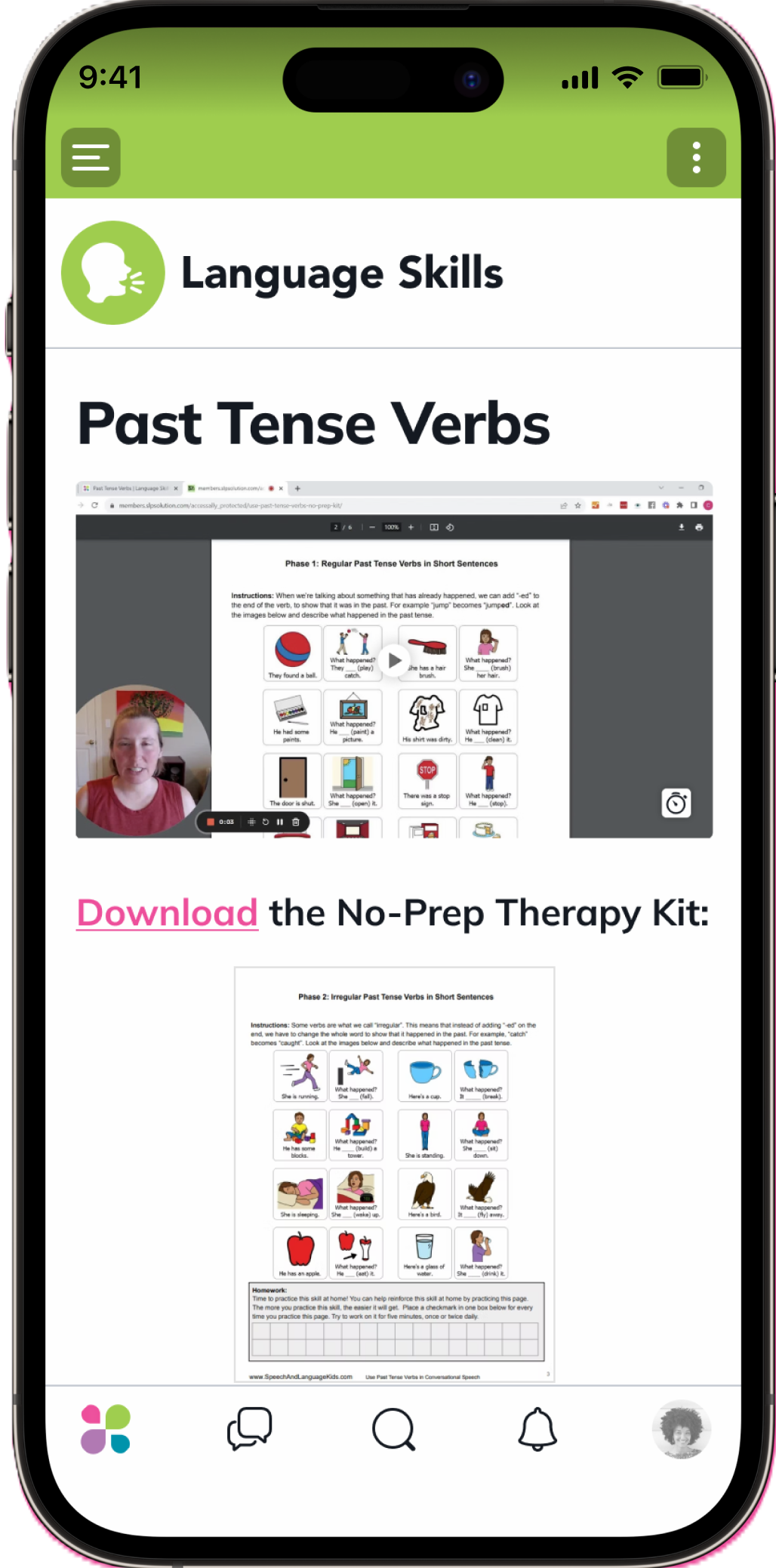Condition: Echolalia and Scripting
Jump To:
Norms by Age Evaluation Suggested Goals Therapy
Definition:
- When a child repeats a word, phrase, or passage that has been spoken by someone else
- Can be immediate or delayed (more than 2 conversational turns after it was originally said)
- “Scripting” is another term used to describe delayed echolalia that is captured from a recording (like a TV show or movie)
Echolalia, or repeating what is heard, is a very normal part of language development. Children that are learning to speak use this constantly. If I ask my 1-yr-old son if he wants a bath (one of his favorite activities), he will consistently say “baa” (he’s still working on final consonants). He doesn’t say “yes” yet, he just repeats the last word of the question. Children learn to use language by repeating what they hear around them. Then, as their language skills increase, they start making up their own utterances more and you see the use of echoing or repeating decline.
However, some children don’t move past this echolalia stage. Some children will only repeat what others have said and very rarely come up with their own thoughts or sentences. Some children don’t speak at all unless it is a movie script or tv script that they have heard before. This type of echolalia is not part of typical development and could indicate that the child is having trouble learning to use language.
Developmental Norms:
Here are some developmental guidelines for echolalia:
- 1-2 Years: Children between the ages of 1-2 years should be echoing or imitating you a lot. That’s how they are learning. However, by age two you should see them begin using their own utterances as well. You may see them continuing to imitate you or use echolalia when you ask a complex question or when you’re giving directions but they should also be using a lot of their own utterances as well. A 2-year-old shouldn’t be ONLY using imitated speech to talk.
- 3 Years: By three years of age, you should see pretty minimal echolalia. 3-year-olds should be creating their own simple sentences to communicate with the world around them. You may still see a little echolalia here and there but the child’s speech should be predominantly their own thoughts.
- Delayed Echolalia/Scripting (Such as Quoting Movies): This is used by many children but relying on it too heavily can be a problem. You may hear movie lines or tv show quotes as your preschooler plays because he is acting out and rehearsing certain scenes that he liked. That’s ok! However, if your preschooler seems to be stuck on one scene or quote and repeats it over and over again, there may be a problem. There’s nothing wrong with a child getting SUPER excited about a certain new movie and focusing a lot of his conversations on it for a while, but it should fade as the novelty wears off.
- Echolalia with Children on the Autism Spectrum: Echolalia occurs often in children on the autism spectrum. Blanc (2012) proposes a six-stage process of natural language acquisition for children on the autism spectrum. This framework begins by children using whole language gestalts (entire sentences) first instead of single words. Then, they gradually learn to break those scripts/phrases into chunks and recombine them to create novel utterances. This explains the use of echolalia in our clients with autism and provides a framework for helping them use echolalia to develop more novel utterances. For more information, check out that work here:
Blanc, M. (2012). Natural language acquisition on the autism spectrum: The journey from echolalia to self-generated language. Madison, WI: Communication Development Center.
Evaluation:
If you have a client who uses echolalia beyond the developmentally-appropriate timeline, it is important to conduct a full language evaluation to discover why the echolalia may be occurring. Some possible functions of echolalia include:
- Child has a limited vocabulary
- Child is echoing to request something
- Child doesn’t know how to answer questions
- Child thinks that your next line (like praise) is supposed to be part of the response
- Echoing is self-stimulatory or habit
- Child is learning language as gestalts (such as with the 6 stages of language development for children on the autism spectrum)
Here are some additional resources that will help you with various aspects of evaluating this condition:
The SLP’s Role in Autism Assessment – Webinar Recording
A one-hour webinar recording that will help you understand your role in the evaluation process for children with autism spectrum disorders.
Speech Therapy for Echolalia – Webinar Recording
A one-hour webinar recording which walks you through how to determine which function the echolalia is serving and how to treat it.
How to Conduct a Play-Based Assessment
When we are unable to complete standardized testing during an assessment, it can be useful to conduct a play-based assessment as well.
Suggested Goals:
The results of the assessment process should help guide what you will target in therapy for a child with autism. Here are some goals that may need to be addressed in children with autism. You can click on one of the goals below to learn more. Or, scroll down to the therapy section for more in-depth resources and support for treating this condition.
- Increase Verbal Output through Indirect Language Stimulation
- Build Expressive Vocabulary of First 50 Words
- Build Subject + Verb + Object Sentences
- Vocabulary: Nouns from Basic Categories
- Questions: Ask Questions
- Questions: Answer Yes/No
- Questions: Answer What
- Questions: Answer Who
- Questions: Answer Where
- Questions: Answer When
- Questions: Answer Why
- Questions: Answer How
- Questions: Answer About Past Events
- Questions: Answering Mixed Questions
Therapy:
Here are some more resources and information that may help you when it comes to treating this condition.
Speech Therapy for Echolalia – Webinar Recording
A one-hour webinar recording which walks you through how to determine which function the echolalia is serving and how to treat it.
Condition: Autism Spectrum Disorders
Resources, training videos, and materials for working with children with autism.
By definition of the diagnosis of autism spectrum disorders, children with autism have difficulties with social communication. Check out all of our resources for social communication skills here.
References:
Blanc, M. (2012). Natural language acquisition on the autism spectrum: The journey from echolalia to self-generated language. Madison, WI: Communication Development Center.
American Journal of Speech- American Journal of Speech-Language -Language Pathology, November 2015, Vol. 24, 750-762. doi:10.1044/2015_AJSLP-14-0166 http://ajslp.pubs.asha.org/article.aspx?articlei d=2397394
Didn’t Find What You’re Looking For?
We’re constantly working on adding new features and topics to this membership site. If you don’t find what you’re looking for by using the search bar at the top of the page, please use the button below to request new features or topics to be added!
